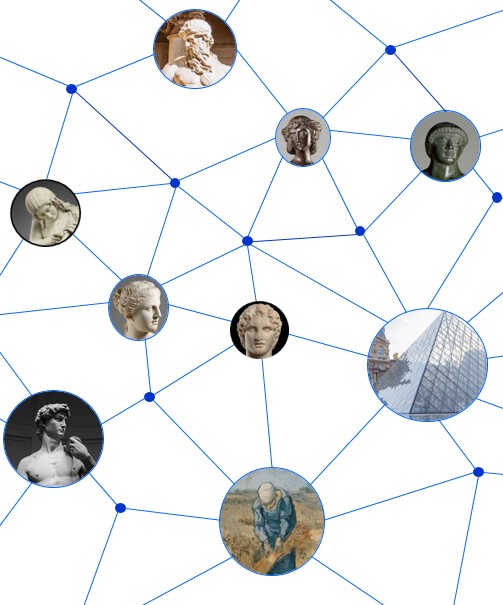1. Demystifying Ontologies
A hands-on workshop on how to build, browse, and query Ontologies in Protégé
Organized by: Condillac Group - Savoie University (France) and KETRC Lab - Liaocheng University (China)

Aim: Master the construction of ontologies in Protégé
Dates: Tuesday 20 April, 2021 and Wednesday 21 April, 2021, 5 :00 pm to 7 :00 pm Paris Time (UTC+1)
Number of sessions: 2 (online, synchronous)
Duration: 2h x 2h = 4 hours total
Prerequisites: None. Knowledge of a markup language, such as html, xml, tei-xml, is desirable.
Audience: This workshop is primarily addressed to Humanists, especially Archaeologists, Historians, Linguists, Classical, Textual and Literary Scholars. Computer and Data Scientists interested in Digital Humanities, Semantic Web and Graph technologies are welcome.
Instructors: Maria Papadopoulou, Christophe Roche.
Cost: 50 euros - Students: 30 euros - Free for USMB and Liaocheng Students
About this Workshop: Ontologies are formal, computer-readable forms of knowledge and the cornerstone of providing formal, computer-tractable semantics on the Web as they define the entities in a domain of interest. The taxonomy of concepts, which is the backbone of any ontology, is particularly useful: it can improve data quality of the Web via the logical inference of new relationships between entities and the estimation of the degree of similarity between texts.
Ontologies structure the data in the domain of interest into classes, properties, data types, and instances and explicitly identify each piece of data on the Web with a Uniform Resource Identifier (URI). Ontologies provide a common vocabulary for multiple systems, so that data coming from one system can be processed in the other. They can complement databased systems in opening their data into the world of Linked Open Data. By connecting data and defining entities and relationships, Ontologies effectively enable the development of sophisticated semantic applications. With connected data and relationships structured by means of Ontologies and stored as graphs, it is easy to incorporate all that important information e.g., in building machine learning models and contextualize data for explainable and credible AI predictions.
For Humanists, Ontologies can be instrumental in the semantic annotation of texts as well as images through the linking of words or phrases (e.g., named entities such as persons, places, etc., events, dates) of unstructured text with elements of the ontology (e.g., entities, relations), rendering data findable, accessible, interoperable, reproducible.
In joining the Demystifying Workshop Series, participants will acquire the necessary concepts and practical skills to address the needs to structure and build, browse and query knowledge graphs. More specifically, participants will acquire the basic notions of the following languages RDF, RDFS, OWL, SPARQL of the Semantic Web, gain familiarity with the well-known vocabularies (ontologies) of the Semantic Web Dublin Core, SKOS, FOAF, CIDOC-CRM, and work on an example of how to build and use an ontology for the semantic annotation of a text using Protégé, a popular open-source ontology editor, downloadable here: https://protege.stanford.edu/ (Please note that in order to use Protégé you have to have a runtime of Java, downloadable here: https://www.java.com/)
